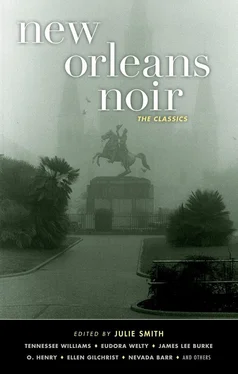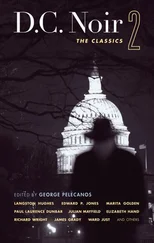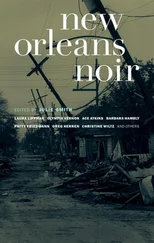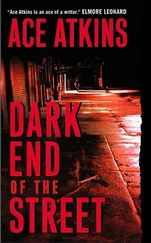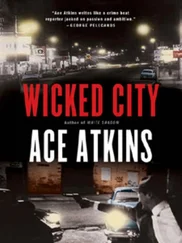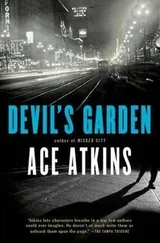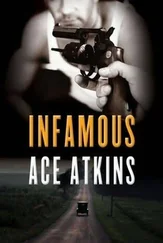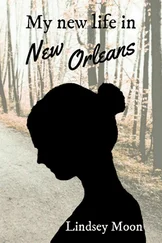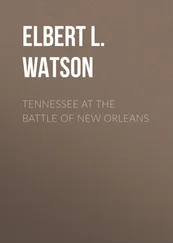Ace Atkins - New Orleans Noir - The Classics
Здесь есть возможность читать онлайн «Ace Atkins - New Orleans Noir - The Classics» весь текст электронной книги совершенно бесплатно (целиком полную версию без сокращений). В некоторых случаях можно слушать аудио, скачать через торрент в формате fb2 и присутствует краткое содержание. Город: New York, Год выпуска: 2016, ISBN: 2016, Издательство: Akashic Books, Жанр: Детектив, на английском языке. Описание произведения, (предисловие) а так же отзывы посетителей доступны на портале библиотеки ЛибКат.
- Название:New Orleans Noir: The Classics
- Автор:
- Издательство:Akashic Books
- Жанр:
- Год:2016
- Город:New York
- ISBN:978-1-61775-384-8
- Рейтинг книги:3 / 5. Голосов: 1
-
Избранное:Добавить в избранное
- Отзывы:
-
Ваша оценка:
- 60
- 1
- 2
- 3
- 4
- 5
New Orleans Noir: The Classics: краткое содержание, описание и аннотация
Предлагаем к чтению аннотацию, описание, краткое содержание или предисловие (зависит от того, что написал сам автор книги «New Orleans Noir: The Classics»). Если вы не нашли необходимую информацию о книге — напишите в комментариях, мы постараемся отыскать её.
takes a literary tour through some of the darkest writing in New Orleans history.
New Orleans Noir: The Classics — читать онлайн бесплатно полную книгу (весь текст) целиком
Ниже представлен текст книги, разбитый по страницам. Система сохранения места последней прочитанной страницы, позволяет с удобством читать онлайн бесплатно книгу «New Orleans Noir: The Classics», без необходимости каждый раз заново искать на чём Вы остановились. Поставьте закладку, и сможете в любой момент перейти на страницу, на которой закончили чтение.
Интервал:
Закладка:
[ Lights on Joe Brown Jr. He is wearing blue jeans and a T-shirt. He is seated. He faces the audience. There is a table in front of him. On the table is a small transistor radio, but the music we hear is Gil Evans’ s “Barbara Song.” ]
Narrator: Here is Joe Brown Jr.
Joe Brown Jr.: Once I saw a feature about surfing on TV. Surfing on beautiful waves on a beach in Hawaii, or somewhere...
[ The lights shift to another man who is seated on the opposite side of the stage. He is a much older man, dressed in a business suit. He is a Negro. He is Dr. Brayboy, a psychiatrist. His chair does not face the audience; it faces Joe Brown Jr. ]
Narrator: A black psychiatrist, Dr. Thomas L. Brayboy.
Dr. Brayboy: At the core of Joe Brown’s personality is a history of frustrations. Psychological, sociological, economic...
Joe Brown Jr.:... and I wanted to do that... surf. It was a dream I kept to myself. Because it would have been foolish to say it aloud. Nobody wants to be laughed at. And then I thought, I never see black people surfing...
Dr. Brayboy: We might call Joe Brown’s homocidal act an act of ritual murder. When murder occurs for no apparant reason but happens all the time, as in our race on Saturday nights, it is ritual murder. When I worked in Harlem Hospital in the emergency ward, I saw us coming in bleeding, blood seeping from the doors of the taxicabs... icepicks and knives...
[ These speeches must be slow, to the rhythm of music .]
Narrator: Play “Summertime” for Joe Brown Jr., and a very funky “Summertime” for his friend James Roberts, who he knifed to death.
Joe Brown Jr.:... And then I thought, I don’t see any black folks on TV, ever. Not any real black folks, anyway. There are those so-called black shows like Good Times and The Jeffersons , but they are so far removed from the kind of folks I know that they may as well be white too. I see us playing football, basketball, and baseball, and half the time I miss that because they be on in the afternoon, and I’m usually shelling oysters. Where am I? I asked my wife, and she answered, In the Florida Avenue project where you are doing a poor job of taking care of your wife and children. My boss answered, On the job, if you would keep your mind on what you are doing... count the oysters.
Dr. Brayboy:... Ice picks and knives and frustration. My tests indicate that Joe Brown Jr. is considerably above average in intelligence. Above average in intelligence. Above average. Vocabulary and reading comprehension extraordinary...
Narrator: [ To audience ] Our purpose here is to discover why.
Dr. Brayboy:... But school achievement extremely low. Dropped out at eighteen in the eleventh grade.
Joe Brown Jr.: I began watching all the TV sets I could, looking for my image on every channel, looking for someone who looked like me. I knew I existed, but I didn’t see myself in the world of television or movies. Even the black characters were not me. All the black characters were either weak and stupid, or some kind of superman who doesn’t really exist in my world. I couldn’t define myself, and didn’t know where to begin. When I listened to soul music on the radio I understood that, and I knew that was part of me, but that didn’t help me much. Something was not right, and it was like... like I was the only cat in the whole world who knew it. Something began to come loose in me, like my mind would float away from my body and lay suspended on a shelf for hours at a time watching me open oysters. No one ever suspected, but my mind was trying to define me, to tell me who I was the way other people see me, only it couldn’t because it didn’t know where to begin.
[ The scene shifts to the desk of the Chief of Police. He may be played by a white actor, or a black actor in white face .]
Narrator: The Chief of Police.
Chief of Police: The rate of crime in the streets in New Orleans has risen sharply. We know that most of our colored citizens are wholesome, law-abiding, decent citizens. But the fact remains that the crime wave we are witnessing now across the nation is mostly nigger crime. Stop niggers and you will stop crime. The police must have more protection, more rights, and more weapons of all types to deal with the crime wave. We need guns, machine guns, multimachine guns, gas bombs, and reinforced nightsticks. Otherwise America is going to become a nightmare of black crime in the streets.
[ Lights up on Mr. Andrews, Joe’s boss. He is sitting behind a terribly messy desk with papers stuck in desk holders. His feet are on the desk. He is eating a large muffuletta sandwich. His image must be one of a relaxed, informal interview at his office during lunchtime. If there are no white actors, the part can be played by a black actor in white face, but instead of eating lunch, he should be smoking a huge cigar .]
Narrator: Joe Brown’s employer, Mr. Andrews.
Mr. Andrews: I have trouble with several of my nigra boys, but I likes ’em. [ He almost chokes on his sandwich .] Joe was a little different from the rest... what would you say... dreamier... more absentminded. Joe was always quitting, but he must have liked it here ’cause he always came back. You can’t tell me anything about those people. One time, during lunch hour, they were singing and dancing outside to the radio and I snuck up to watch. If they had seen me they would’ve stopped. It was amazing. The way them boys danced is fantastic. They shore got rhythm and a sense of style about them. Yes sir... and guess who got the most style... ole Joe. [ Bites and eats .] That boy sure can dance. I loves to watch him. [ Bites. ] Recently, he been going to the bathroom a lot and staying a long time. I ask the other boys, Where’s that doggone Joe? They tell me. So one day I go to the john and there he is, sitting on the stool... readin’. I say, Boy, I pay you to read or shell oysters? He comes out all sulky. [ Smiling. ] He could be kind of sensitive at times, you know. I been knowing him since he was a kid... born around here... kind of touchy. [ Andrews has finished his sandwich. He takes his feet off the desk, throws the wrapper into the trash, and wipes his hands. A serious look comes over his face .] As for why he killed that boy, I can’t give you any answers. I think it has to do with nigras and the way they get wild on the weekend. Sometimes the good times get a little rough. And them [ pause ] you don’t know what a boy like Joe can get mixed up in, or any of them out there. [ Waves toward the door. ] I don’t understand it, and I know and likes ’em all, like they was my own family. My job is to keep ’em straight here... any trouble out of any of ’em and out the door they go.
[ The scene shifts to another white man. He is well dressed with his tie loosened, sitting behind an extremely disordered desk. Black actor can play in white face. He must, throughout his speech, wear a public relations smile. He must speak with a winning air .]
Narrator: Mr. Richard Spaulding, director of the Poverty Program in New Orleans.
Mr. Spaulding: Last year we spent 3.5 million in five culturally deprived areas of New Orleans. This money has made a tremendous difference in the lives of our fine colored citizens. We have provided jobs, jobs, and more jobs. By creating, for the first time, indigenous community organizations controlled and operated by the people of the five target areas, we have, for the first time, provided a way to close the cultural and economic gap. Social service centers are going up in all these areas. We will develop a level of competency on par with American society as a whole. In the Desire area alone, 750 mothers go to our medical center each day. We have, in short, provided hope. Of course, there are still problems.
Читать дальшеИнтервал:
Закладка:
Похожие книги на «New Orleans Noir: The Classics»
Представляем Вашему вниманию похожие книги на «New Orleans Noir: The Classics» списком для выбора. Мы отобрали схожую по названию и смыслу литературу в надежде предоставить читателям больше вариантов отыскать новые, интересные, ещё непрочитанные произведения.
Обсуждение, отзывы о книге «New Orleans Noir: The Classics» и просто собственные мнения читателей. Оставьте ваши комментарии, напишите, что Вы думаете о произведении, его смысле или главных героях. Укажите что конкретно понравилось, а что нет, и почему Вы так считаете.
